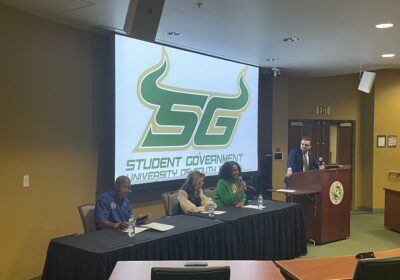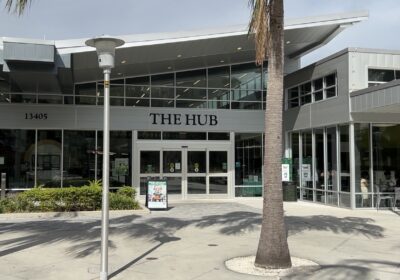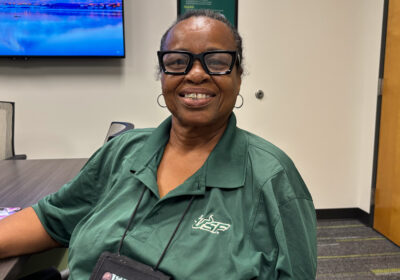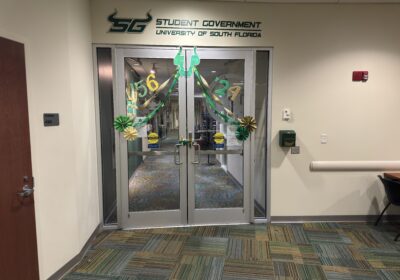Million-dollar gift funds research seeking to save lives from lung scarring
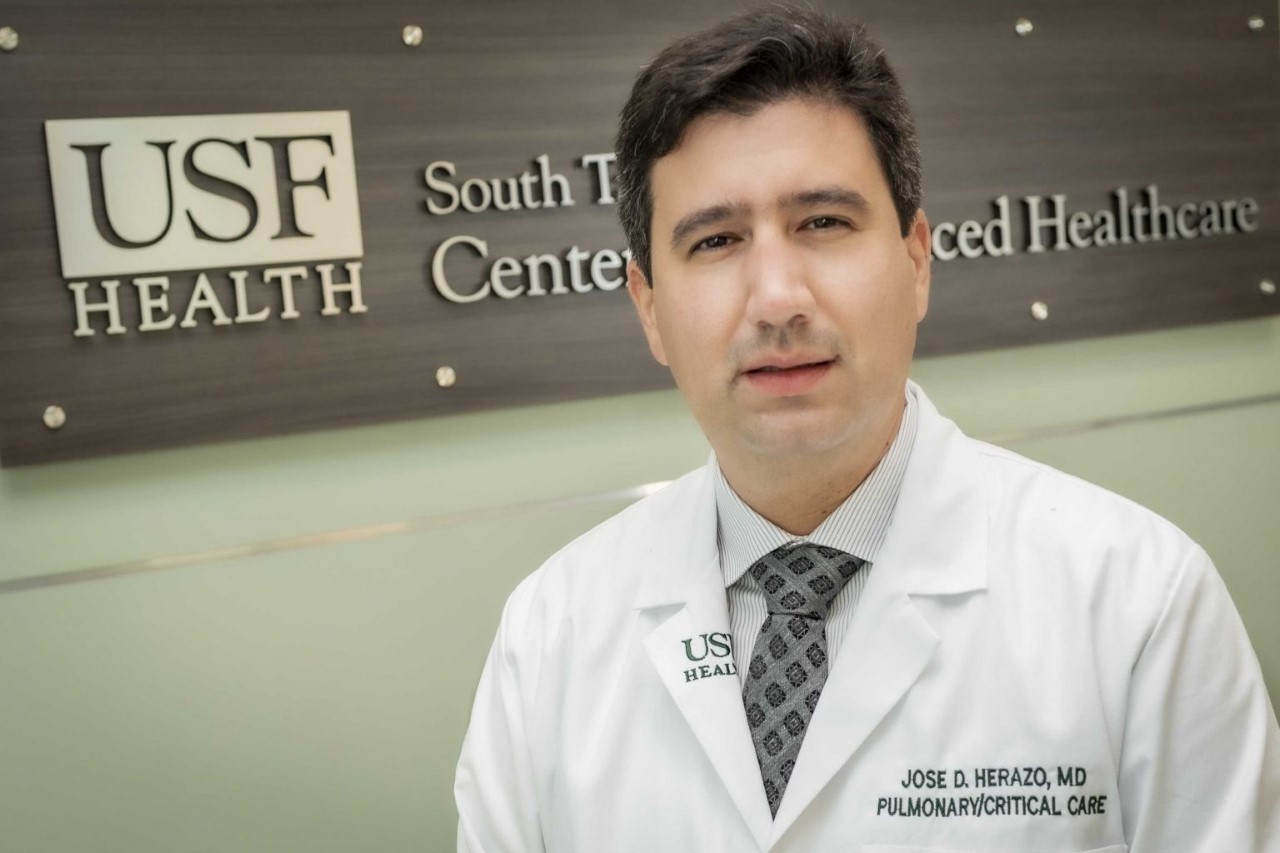
As lung damage becomes a more frequent long-term effect among coronavirus survivors, USF Health has received a $1 million gift to conduct a research study that could lead to the development of therapies and treatments to prevent detrimental lung scarring.
Jose Herazo-Maya, a new associate professor at USF Health, has spent his career researching pulmonary fibrosis, which is lung scarring that prevents oxygen from getting into the lungs. Lung scarring has become a topic of even greater interest over the past year, as COVID-19 patients have begun to see scarring develop after contracting the virus.
In his 13 years of research, Herazo-Maya has worked with many patients, but this year one of them, Timothy Ubbens, donated $1 million to USF as a gift to Herazo-Maya to finance his research.
“[Ubbens] was all too aware that companies are not developing treatments for pulmonary fibrosis at a fast pace, and there’s only two drugs approved to treat fibrotic lung diseases,” Herazo-Maya said. “He knew my research background, and he knew I was moving to USF, so he contributed so we could start outlining a program to try to come up with new ways to [predict] and treat lung fibrosis.”
The gift will allow Herazo-Maya to build the research program from the ground up. He is currently working on purchasing equipment that will outfit the new Ubben Family Pulmonary Research Laboratory in the USF Health Heart Institute in downtown Tampa.
Some of the equipment includes freezers that will store lung samples to be tested and studied. He will also purchase equipment used to analyze human genome expression, allowing him to use genetic indicators as predictors of individual mortality rates as it pertains to lung scarring.
“Ever since I started my career, I was fascinated with the ability to use the expression of genes to predict certain disease outcomes, because as a physician, I think if we intervene too late, we may not be able to transform the course of the disease,” he said. “My main area of expertise is the use of gene expression and different tissues like cells or lung tissue to predict the future, and that means mortality.
“So if you find changes in the expression of these genes, before the disease progresses, then you can intervene and change mortality. Ultimately, what we want are drugs and treatments that can change mortality.”
Research has not officially begun yet since Herazo-Maya is still in the process of hiring a Ph.D. who will work on the research and a nurse who will help with sample collection. He also needs to complete a few academic documents to publish which outline his research process and ultimate goal.
As soon as he is able to get a direct supplier of human samples, such as immune cells and lung tissue from patients who have received a lung transplant, and fully hire a team, he will be ready to start.
“Once the research begins, we’re going to have daily human sample collection,” he said. “The samples will be transferred to the lab and stored in a refrigerator and then a Ph.D.-level lab technician will process those samples.
“We will perform an experiment, such as gene expression occurrence, which is my area of expertise. Then once the experiments are performed, there comes a process of data analysis. So we analyze the expression of these genes, we determine whether these genes are associated with a particular outcome of interest … like mortality or survival.”
While the human samples are tested, the research team will concurrently test on animals such as mice to see if they can replicate and modify what happens in human lung tissue. If they are able to successfully modify the outcomes of lung tissue with scarring in mice and other animals, they will potentially be able to develop new treatment or therapies to lessen the mortality rate of pulmonary fibrosis in humans, according to Herazo-Maya.
He said this research is coming at exactly the right time because of the increased presence of lung scarring in COVID-19 patients.
“Ever since the pandemic started, there was a lot of money pumped into research to try to find new drug therapies [and] new biomarkers of disease progression, but people forgot we had studied several things in the past that could be used to treat, diagnose or prognosticate COVID-19,” he said.
When he was researching at the University of Pennsylvania in 2013 and at Yale in 2017, he, along with teams of other researchers, discovered 52 genes that were found to be predictive of independent pulmonary fibrosis mortality. Herazo-Maya believes those genetic indicators could be used to predict which individuals have higher likelihoods of mortality from the coronavirus.
“We think that this gene signature could be used to aid in health care utilization with COVID-19,” he said.
“For example, if you have a high-risk profile based on these genes, that means you need to be triaged into a higher level of care and you come to the hospital before you develop serious symptoms. So perhaps in the future, we can use profiling to design clinical trials, or more aggressive ways to treat the disease.”
The need for genetic predictors was evident at the beginning of the pandemic, according to Herazo-Maya, because allocation for equipment like ventilators or medications to slow the disease was greatly misused.
He said if hospitals had been able to identify the patients at the highest risk of mortality early on, they could have provided them with ventilators and treatments in lieu of patients who did not present that genetic risk and instead could go home and be with their families.
Herrazo is thankful for Ubbens’ gift because he hopes that it will eventually allow him to save patients suffering from pulmonary fibrosis.
“We want to treat patients so they can leave and so that’s basically the way I envisioned this program, as a way we can develop a pipeline to discover molecules and targets for treatments that can impact patient mortality,” he said.

